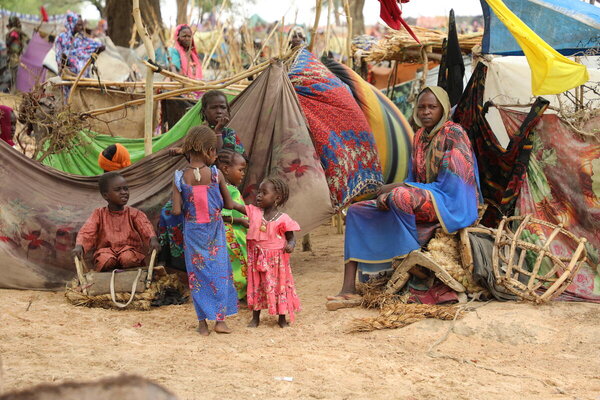WFP reaches over one million people in Sudan with life-saving food assistance despite insecurity and access challenges

“The humanitarian needs have reached record levels in Sudan and there is still no sign of an end to the conflict,” says Eddie Rowe, WFP’s Country Director in Sudan.
“WFP is doing everything possible to deliver life-saving assistance to millions of people in Sudan and thousands more who have fled to neighbouring countries, but we cannot do it alone. The world must now come together to provide the resources to support the people of Sudan in their hour of need.”
An update from Sudan where WFP is rapidly expanding the distribution of emergency food assistance across the country:
- WFP is expanding its operation to support 5.9 million conflict-affected people across Sudan over the next six months. WFP urgently requires $US409 million for this scale up.
- On 9 June in Wad Madani (Gezira State), WFP provided nutrition supplements and emergency food assistance to nearly 300 orphaned young children and teenagers and their caregivers who were evacuated from the Mygoma Orphanage in Khartoum, where dozens of children tragically died in the early weeks of the conflict.
- In Khartoum State, last week WFP delivered food assistance to 24,000 residents in Karrari locality, north-east of Omdurman. A total of 50,000 people who are trapped by the fighting in the Khartoum metropolitan area have so far received support. WFP plans to support 500,000 people in Khartoum State, as and when security permits.
- WFP has established food distributions in the areas receiving the largest numbers of people fleeing from Khartoum. WFP completed emergency food distributions for 32,000 people in Shendi in River Nile State and for 8,000 people in Wadi Halfa in Northern State on the Egyptian border. Distributions in Atbara, Elmatama, and Berber in River Nile State, and Gezira State are ongoing. Plans to provide food assistance in Merowe and Dongola, Northern State are underway.
- In the Darfurs, WFP has provided food assistance and nutrition supplements to over 375,000 people in South, North, Central and East Darfur. There have been some breakthroughs in access, particularly in North Darfur where around 16,500 people in hard-to-reach areas in Shangil Tobiya and Shedad received emergency food rations. The first cross-line aid deliveries in the Darfurs took place on 10 June between areas controlled by different parties to the conflict.
- The first cross-border movement of commodities from Egypt to Sudan took place on 16 June. The border crossing between Egypt and Sudan will be a humanitarian corridor for all humanitarian partners.
- WFP has operations to support refugees from Sudan in all neighbouring countries: Chad, Central African Republic (CAR), Egypt, Ethiopia, and South Sudan. More than 500,000 people have fled Sudan since the conflict began and WFP has delivered assistance to over 248,000 people across all five countries.
- The start of the rainy season in Chad and Central African Republic is creating new obstacles for WFP’s support to new arrivals from Sudan as road access becomes increasingly challenging due to the rains. In Chad, WFP is speeding up food procurement and prepositioning food at the borders and setting up a major logistics hub in Farchana, Chad near the border with Sudan, to support the response.
- In CAR, the security situation along the border with Sudan is volatile and deteriorating. The coordinated humanitarian response for arrivals from Sudan, led by UNHCR and the government, is supporting refugees and returnees to relocate from the border to Birao, around 65 km away. However, Birao will soon only be accessible by air due to the rains, significantly increasing operational costs. WFP is prepositioning food and supporting emergency cargo flights to Birao.
Package of photos available here.
Video is available here.
# # #
The United Nations World Food Programme is the world’s largest humanitarian organization saving lives in emergencies and using food assistance to build a pathway to peace, stability and prosperity for people recovering from conflict, disasters and the impact of climate change.
Follow us on Twitter @wfp_media @wfp_africa @wfp_sudan
Topics
Sudan Emergencies Food security Logistics and delivery networksContact
For more information please contact (email address: firstname.lastname@wfp.org):
Leni Kinzli, WFP/ Sudan,
Mob. +1 917 242 8707
Alessandro Abbonizio, WFP/ Nairobi,
Mob. +254 723 001 639
Annabel Symington, WFP/ Rome,
Mob. +44 7746 397099
